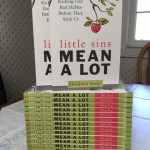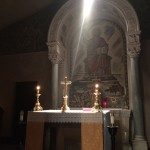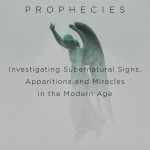[In Chesterton’s novel The Ball and the Cross, old Turnbull, the atheist] starts falling in love with a young Catholic woman named Madeleine. . . she finally talks to him not only about his duel, but about the sacraments:
He advanced upon Madeleine with flaming eyes, and almost took her by the two shoulders. “I do not love God,” he cried, . . . “I do not want to find Him; I do not think he is there to be found. I must burst up the show; I must and will say everything. You are the happiest and honestest thing I ever saw in this godless universe. And I am the dirtiest and most dishonest.”
Madeleine looked at him doubtfully for an instant, and then said with a sudden simplicity and cheerfulness: “Oh, but if you are really sorry it is all right. If you are horribly sorry it is all the better. You have only to go and tell the priest so and he will give you God out of his own hands.”
“I hate your priest and I deny your God!” cried the man; “and I tell you God is a lie and a fable and a mask . . . I am sure there is no God.”
“But there is,” said Madeleine, quite quietly, and rather with the air of one telling children about an elephant. “Why, I touched His body, only this morning.”
“You touched a bit of bread,” said Turnbull . . .
“You think it is only a bit of bread,” said the girl, and her lips tightened every so little.
“I know it is only a bit of bread,” said Turnbull, with violence.
She flung back her open face and smiled. “Then why did you refuse to eat it?” she said.
In his own personal experience, Chesterton referred to the Eucharist as “that tremendous Reality.” It was so real, he was so in awe of it, that he only approached it in true fear and trembling. It is fitting that in his fiction he respects it even through the character of an atheist and blasphemer.
Excerpted from Dale Ahlquist’s Common sense 101; Lessons from G.K. Chesterton, which I am enjoying and will be revisiting here throughout the weekend. The above reminds me of this:
We have obliterated the stars with our artificial light – but perhaps we’ve blinded ourselves, too. Without the wonder, the greatness of the galaxies in our sight, we’ve lost the ability to believe in, or expect, miracles. When you cannot see the glory of God’s creation, how can you wish to glorify the Lord? No longer seeing anything greater than ourselves, we turn inward, we worship our own thoughts, our invention, our desire.
This generation thinks of itself as the most enlightened, most informed, most aware, but how can that be? We see the world through 19 inch computer screens, and 40 inch television screens. We melt the sand to create 36 inch windows, and we think that’s as big as the world gets. We’ve narrowed our perspective – made it boxed sized and so have boxed ourselves in. And then we blame God for not giving us miracles anymore – and we blame religion for making us expect them. We are such fools. Thomas Merton had it more right than I had realized when he wrote:
The devil is no fool. He can get people feeling about heaven the way they ought to feel about hell. He can make them fear the means of grace the way they do not fear sin. And he does so, not by light but by obscurity, not by realities but by shadows; not by clarity and substance, but by dreams and the creatures of psychosis. And men are so poor in intellect that a few cold chills down their spine will be enough to keep them from ever finding out the truth about everything The devil does rob us of clarity by casting us about in shadows. But he fools us into thinking that the shadows are light. Our illumination is only illusory.
And this is why we need the Eucharist. As Merton said in The Seven Storey Mountain,
I tell you there is a power that goes forth from that Sacrament, a power of light and truth, even in to the hearts of those who have heard nothing of Him and seem to be incapable of belief.
And too he said, of the Eucharist:
…that tremendous, secret and obvious immolation, so secret that it will never be thoroughly understood by a created intellect, and yet so obvious that its very obviousness blinds us by excess of clarity; the unbloody Sacrifice of God under the species of bread and wine.
Blinds us by excess of clarity. Yes.











